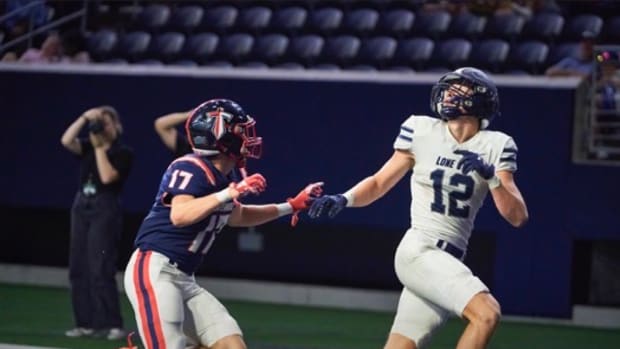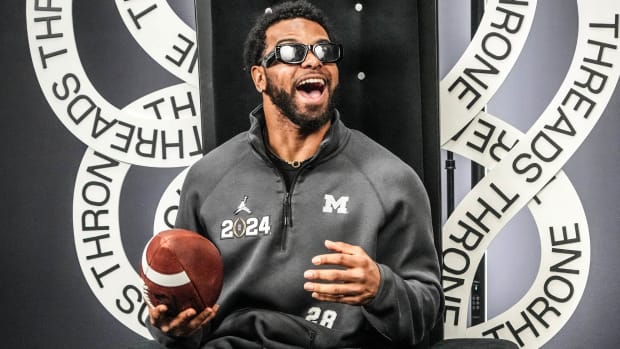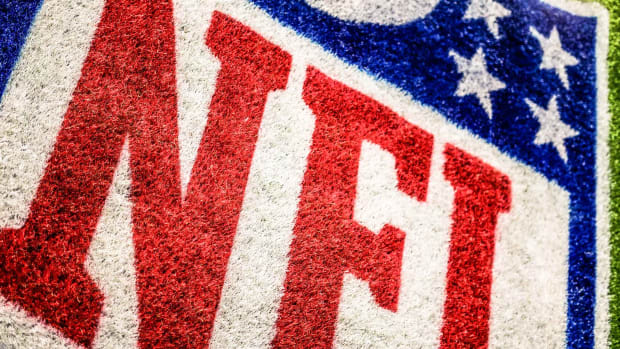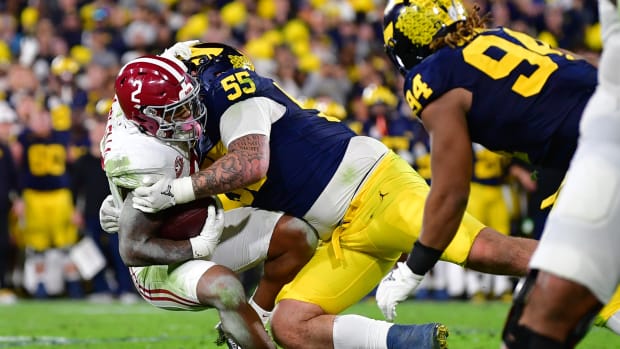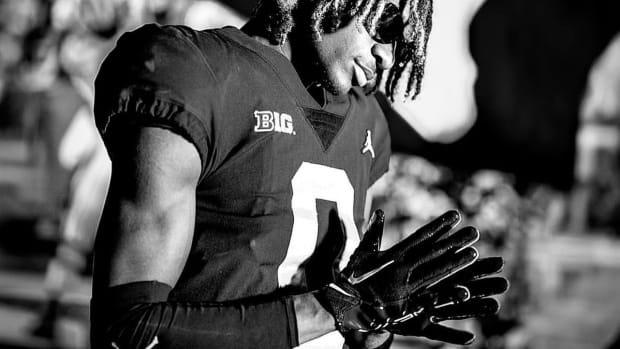Earning Your Wings: A Good Or Bad Idea?
You’d be hard-pressed to find anyone inside or outside of the Michigan Football program looking to recreate the days of Rich Rodriguez in Ann Arbor. There was, however, one tradition Rodriguez brought to the program that might deserve a second look.
In 2010, Michigan was beginning its third and final fall camp under Rich Rodriguez. Earlier that summer, Rodriguez had indicated that a handful of “out-of-shape players” would not “have the opportunity to wear the winged helmet” when the Wolverines opened up their season on September 4 against UConn. While some chalked it up to mostly just coach talk, it soon became obvious just how serious Rodriguez was. When the Big Ten Network crew arrived that fall to visit the team’s practice, there was something missing and it was very noticeable – several Michigan players had on plain navy blue helmets. No wings.
After BTN shared a photo of then quarterback Tate Forcier sporting a wingless helmet, Rodriguez was forced to address the decision directly.
“It’s more, ‘Has he earned the wings?' Rodriguez asked. "Certainly, we want everybody that runs down that tunnel on September 4…they are going to be wearing a winged helmet. In order to run down that tunnel, you’ve got to appreciate the privilege you have to play here. I think all of them will, and if they don’t, they won’t wear the helmet.”
While this type of tactic is widely used throughout football (and sports in general), it was certainly new to the University of Michigan Football program and was likely one more reason why the powers that be would remove Rodriguez later that year. That being said, I can’t say that I find it to be a bad idea. In fact, it might be something worth reintroducing to the program.
You don’t have to look too far outside of Ann Arbor to find a program that uses a similar tactic, one that has created a significant sense of achievement for its young players. Upon his arrival in Columbus back in 2012, Urban Meyer implemented the “black stripe ritual’ as a way of motivating the younger players on the team. In short, the black stripe doesn’t come off of a freshman’s helmet until they have proven that they are worthy of being a Buckeye.
“It really doesn’t have a lot to do with playing time and all that," Meyer once said of the tradition. "It has to do with just practicing at the tempo, four-to-six, A-to-B. Living our culture on and off the field and doing those types of things. Some guys have their stripes on for quite a while. That’s an indicator that they’re not quite doing what we asked them to do.”
The black stripe ceremony, one that has continued under Ryan Day, has become extremely popular within the program and among the fan base, so much so that it is major news when Buckeye players have their black stripe removed – and even bigger news when the stripe remains for longer than expected.
To be clear, this is not a ringing endorsement of Meyer and his ability to hold players to a high standard. At the same time, and in spite of what you think of him personally, it is an endorsement of Meyer's elite ability to motivate his players. Urban has proven throughout his entire coaching career to be a master motivator – something Jim Harbaugh is all too familiar with.
It’s no secret that the amenities at Michigan are good. Really, really good. You’re likely to earn a degree from one of the top universities in the country. You’ll play in the largest stadium in North America for every home game. You’ll have access to world-class facilities. You’ll be treated to every Jordan brand shoe imaginable. In normal times, you’ll take trips abroad with your teammates to visit places like France and South Africa.
On day one, you’ve essentially got everything a young athlete could ask for.
In addition to all of the perks, you also get to don one of the most recognizable and iconic pieces of equipment in all of sports – the winged helmet. I often wonder if that treasured part of Michigan history is one that shouldn’t be a given on day one, but rather one that should be earned during fall camp.
